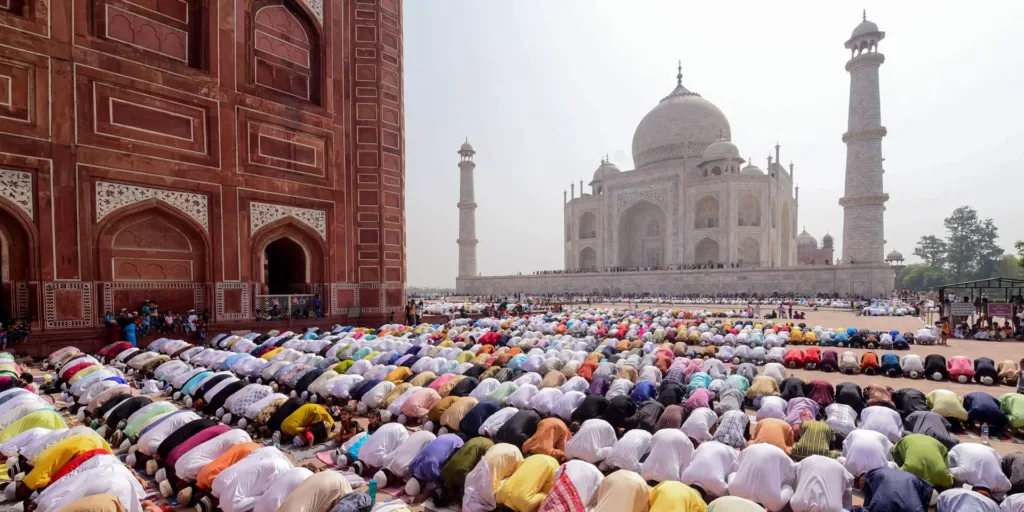Eid al-Fitr, also known as Eid ul-Fitr, is a significant event in the Islamic calendar that marks the end of Ramadan’s holy month. Here are some key facts and history about Eid:
1. Meaning
The name “Eid al-Fitr” translates to “Festival of Breaking the Fast,” as it signifies the end of the month-long fast during Ramadan.
2. Celebration:
People celebrate Eid with a variety of activities, including visiting family, exchanging gifts, eating special foods, and attending prayers. It is a time for forgiveness and reconciliation, strengthening family and community ties, and performing acts of charity and kindness towards those in need.
3. Ramadan:
Muslims observe fasting during the month of Ramadan, which is a time for spiritual reflection and devotion.
4. Origins
The Prophet Muhammad established Eid al-Fitr after his migration from Mecca to Medina. In 624 CE, Medina celebrated the first Eid ul-Fitr.
Read More
5. Date
Eid al-Fitr is celebrated on the first day of Shawwal, the tenth month, according to the Islamic calendar. Each year, the sighting of the crescent moon determines the exact date.
6. Global Celebration
Over 1.6 billion Muslims worldwide celebrate Eid. It is one of the biggest religious festivals in the world.
7. Significance:
Eid al-Fitr is a time for Muslims to express gratitude to Allah for the strength and blessings received during Ramadan. It is also a time for forgiveness and reconciliation, strengthening family and community ties, and performing acts of charity and kindness towards those in need.
8. Eid ul-Fitr vs. Eid ul-Adha:
According to the Islamic calendar, Eid ul-Fitr is one of the two most important festivals, with Eid ul-Adha being the other. Eid ul-Adha commemorates the willingness of the Prophet Ibrahim to sacrifice his son, Ismail, as an act of obedience to Allah.
In conclusion, Muslims celebrate Eid al-Fitr, a significant event in the Islamic calendar that marks the end of Ramadan, with joy, forgiveness, and acts of kindness. It is a time for Muslims to come together with family and friends to express gratitude to Allah for the blessings received during Ramadan.
Share this content:

